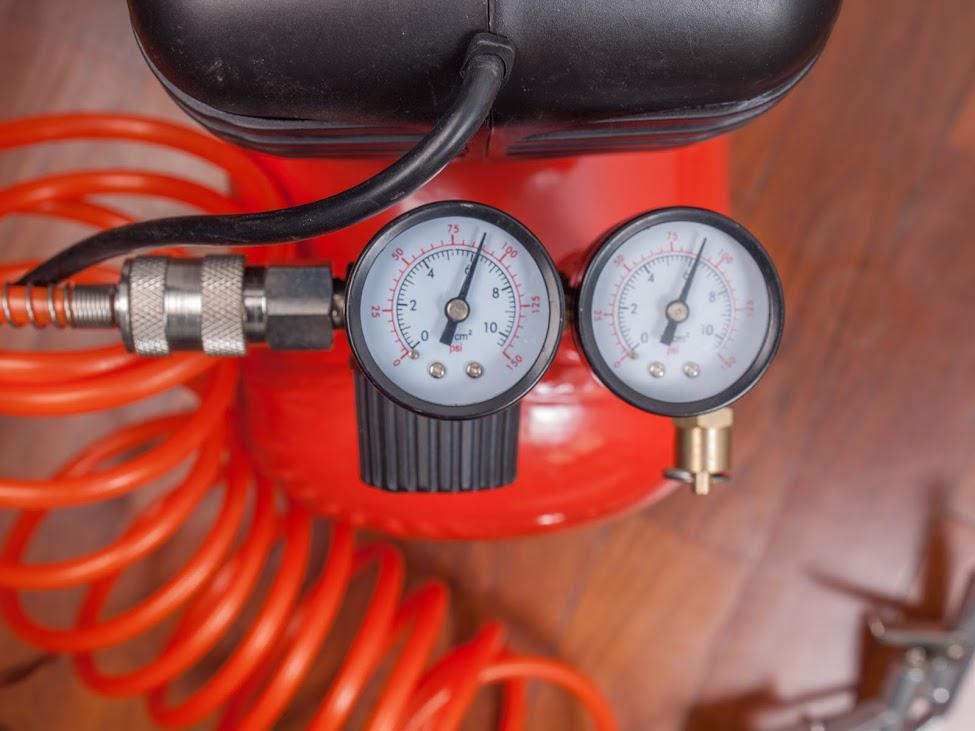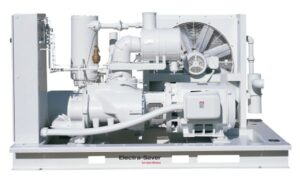Compressed air systems are widely used in a variety of industries, such as manufacturing, agriculture and energy production, and are prized for their reliability.
Unfortunately, any compressed air system can suffer from crippling malfunctions and mechanical faults if you do not properly maintain the system, and preventing damage caused by moisture is particularly important. Integrating an air dryer into a compressed air system is one of the most effective ways to prevent internal damage caused by moisture.
How Can Moisture Damage Compressed Air Equipment?
All air contains moisture, even in the driest places on Earth, and the compressed air used in manufacturing and industry is no different. Every canister of compressed air your business uses will inevitably contain trace amounts of water vapor, which will pass through the workings of whatever piece of machinery or equipment the compressed air is used in.
Generally, these trace amounts of moisture do not cause any significant problems. However, if there is too much water vapor in the compressed air, liquid moisture can start to accumulate on the moving parts and interior surfaces of your air-powered equipment. This moisture can cause serious problems with rust and corrosion damage, and can also badly damage the end products of manufacturing processes that use compressed air.
These moisture-related problems may worsen if the temperature of the compressed air reaches its dew point. At this point, the gaseous water vapor in the compressed air will start to condense into liquid water, which is then forced through the air-powered system at extreme speeds. This phenomenon can cause serious physical damage as well as corrosion problems.
How Do Air Dryers Prevent Moisture Damage?
The vast majority of compressed air systems that commercial and industrial companies use are fitted with air dryers, which act as dedicated devices that extract water vapor and moisture from the compressed air before it is used with equipment or products. And these dryers can use a variety of methods to remove moisture from compressed air. Some of these dryers include:
- Refrigerated Dryers. These dryers use the dew point principle to their advantage, cooling the compressed air as it passes through the dryer. This causes any water vapor present to condense into liquid, which is collected and removed.
- Desiccant Dryers. These simple dryers force the compressed air through layers of desiccant material, such as activated alumina, which catch and remove particles of water vapor from the air supply. Different desiccant dryers work best with different types of desiccant media.
- Membrane Dryers. These dryers are similar to desiccant dryers, but they use a semi-permeable membrane instead of granular desiccant media. As compressed air passes over this absorbent membrane, water is drawn through the membrane’s surface and removed.
When well-chosen and properly used, a compressed air dryer can almost completely eliminate moisture in any compressed air-powered system or process. Investing in a suitable air dryer can dramatically lengthen the usable lifespan of any air-powered piece of equipment, and it is absolutely essential in processes that use compressed air to create moisture-sensitive products.
How Do You Choose The Right Air Dryer?
Different types of compressed air dryers are more suitable for some applications than others, and choosing the wrong type of dryer for your equipment can lead to serious problems. For example, many desiccant dryers will significantly lower the pressure of any compressed air that passes through them, which can reduce efficiency and make certain industrial processes impossible.
You should also ensure that the dryer you choose can handle the amount of compressed air that passes through it. Running an underpowered dryer with insufficient capacity can cause serious damage and delays, while oversized dryers are inefficient and expensive to run.
Choosing the right make and model of air dryer for your specific needs is therefore essential. Many pieces of air-powered equipment are designed to operate with specific types of air dryers, and following the manufacturers recommendations is always a good first step.
However, if you are unsure about why type of air dryer is required for a specific process or piece of equipment, contact the specialists at Kruman Equipment Company for advice and recommendations.




